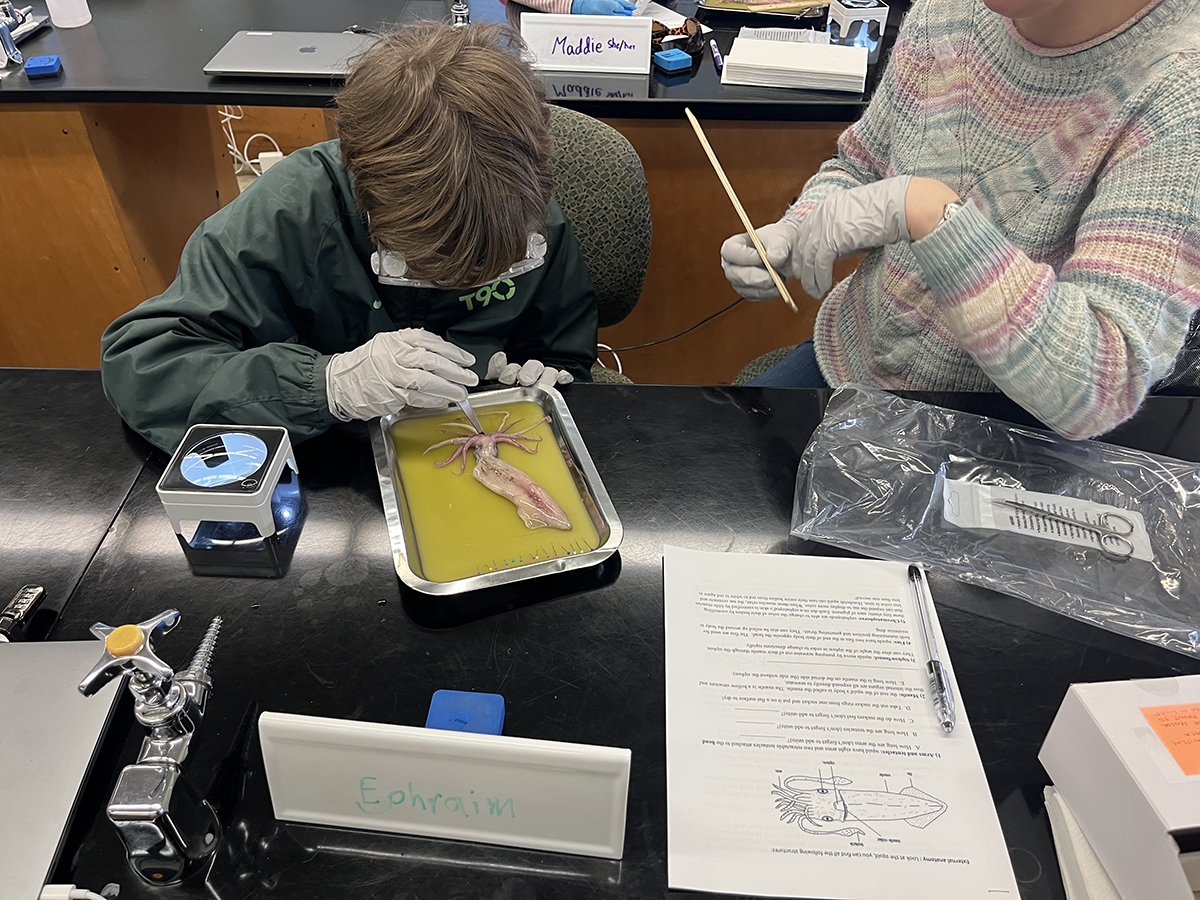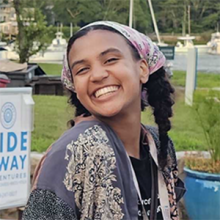Generations of Cephalopod Scientists
Project organizers: Angelique Allen
University of Oregon and Neural Systems and Behavior 2023 Alumni
The Generations of Cephalopod Scientists will turn 4th-6th grade students from underserved schools in Eugene, Oregon and their parents into scientists for an afternoon as they dive into the minds of cephalopods! As a cephalopod researcher who was recently introduced to electrophysiology in the Neural Systems and Behavior course, I have a newfound respect and excitement regarding the history of the giant axon. I plan to share my excitement for the groundbreaking work of the 1950’s and my passion for cephalopod neurobiology by talking about what life is like underwater, playing with 3D octopus brain puzzles, and doing a squid dissection. I am particularly excited to work with parents since basic science is a field that my parents had never heard of and that I did not discover until the end of my undergraduate career. Without the strong scientific role models that I had during the last year of my undergraduate studies I would not have felt as supported to pursue a career in research. I am grateful for those influential role models who showed me that minorities could have leadership roles in science, and as a female and person of color I hope to serve as a scientific role model in my community.

I would like everyone to leave this event with a better understanding of what it is like to be a scientist- how they are always asking questions and thinking about the environment of their subjects. By encouraging students to problem-solve and experience life like another animal I hope these students are able to see themselves as scientists. While we talk about all of the cephalopod related discoveries and those who have made them, I hope they will take away how basic research is essential to understand how the brain works, and in order to study different brains you have to think about that animal’s environment, and that anyone can be a scientist by problem-solving and questioning how things work. After the event I will donate the 3D octopus brain puzzles, the polarization puzzles, and the polarization displays to the Charleston Marine Life Center (CMLC) in Charleston, OR and the Hatfield Marine Science Center (HMSC) in Newport, OR, which will allow me to share these take-home messages with a larger audience. Overall, I aim to inspire students to become scientists and to show adults that basic research is crucial to improving our understanding of life itself.
